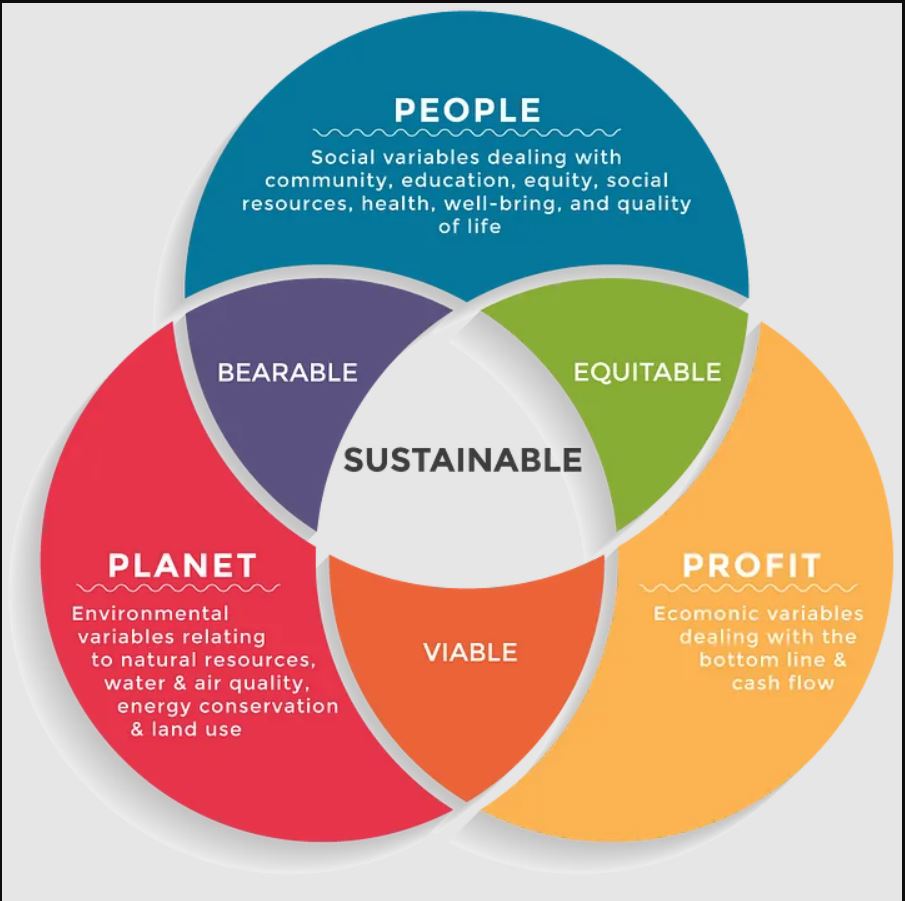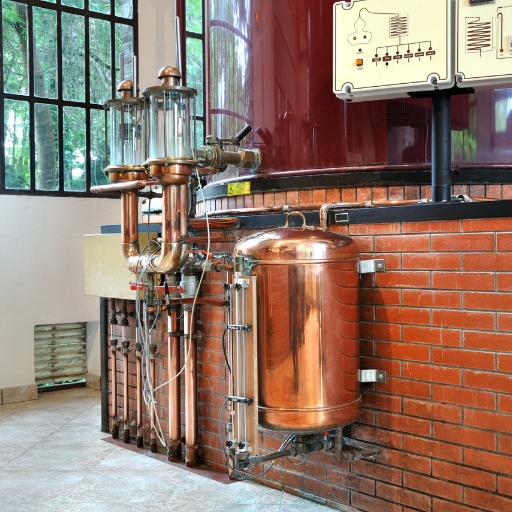
Sustainability – Energy, water, waste and people
Estimated reading time: 6 minutes
Sustainability – Energy, water, waste and people
The sustainability movement has been gaining significant momentum over recent years, and it’s an issue that’s very much of the here and now. As the world becomes more focused on combatting climate change and adopting eco-friendly lifestyles, the hospitality sector adapts to these changes by prioritising sustainability.
Until recently, the topic of sustainability would have only been engaged with by a small subset of progressive hospitality operators. However, environmental issues and the recent impact of geopolitical problems have forced the topic to the forefront of our collective consciousness and compelled the industry to accelerate the adoption of a fundamentally different mindset.
To remain competitive, it’s vital to satisfy guest demands while complying with regulations and embracing more sustainable practices. Those businesses in our sector that continue to make significant strides towards a more sustainable future will stay ahead of those who aren’t.
What is sustainability?

What is sustainability?
Sustainability is the ability to meet the needs of the present without compromising on the ability of future generations to meet their own needs. There are three key pillars: social, environmental, and economic, sometimes called people, planet, and profit.
The goal for any business and society in general is that the three pillars are given equal footing, but typically, profit has been favoured at the expense of people and the planet. Sustainability is correcting that imbalance so current and future generations can thrive.
People
The social pillar refers to the impact of business activities on people and communities. It includes labour practices, social responsibility, employee rights and benefits, gender equality, inclusivity and community engagement. In the context of the hospitality sector, it includes issues such as fair employment practices, ethical sourcing of products and community outreach programs.
Planet
The environmental pillar refers to the impact of business activities on the natural environment. It includes factors such as carbon emissions, energy consumption, waste management and biodiversity. In the context of the hospitality sector, it includes issues such as reducing water and energy consumption, minimising waste generation and adopting sustainable building design.
Profit
The economic pillar refers to the impact of business activities on the economy. It includes factors such as economic growth, job creation and the efficient use of resources. In the context of the hospitality sector, it includes issues such as promoting local economic development, supporting local suppliers, and using resources efficiently to reduce operating costs.
The four key areas where hospitality operators can make a real difference
Energy

Energy
One key area where operators can make a real difference is energy consumption. This is about using less energy rather than generating your own. A great place to start is by conducting an energy audit. In some regions, there’s government support available for energy auditing, so you should investigate what’s available to you locally. A professional audit will give an in-depth analysis, but there are certain things you can look at for yourself.
Energy usage analysis: Review your energy bills to understand consumption patterns, peak periods, and trends. Compare data over months or seasons to identify fluctuations and pinpoint areas of concern.
Equipment and appliance assessment: Walk through your venue and compile a list of all equipment and appliances that use energy. Note their age, condition, and energy efficiency ratings. Old or poorly maintained equipment tends to be less energy efficient.
Lighting review: Analyse your lighting systems, including bulbs, fixtures, and controls. Switching to energy-efficient lighting options can lead to significant savings.
HVAC (Heating, Ventilation and Air Conditioning) system inspection: Evaluate HVAC systems. Ensure filters are clean, vents are unobstructed, and programmable thermostats are utilised for efficient temperature control.
Behavioural audit: Observe how energy is used throughout the day and note any wasteful behaviours, inefficient practices, or opportunities for improvement. You should turn your audit into an energy action plan when you’ve completed your audit. Bring your team together to make them a part of the plan and process.
Green teams
Green teams are becoming more common; a team that can take some of the responsibility for enacting change and ensuring it doesn’t all fall to the management team will help make you implement your plan more effectively.
Measure your impact. Look at your energy usage and set a target for reduction. Report your progress and results to your team regularly to encourage engagement and keep everyone focussed. Use the energy reduction savings to fund additional initiatives to continue your energy action plan.
Water

Water
Hospitality businesses tend to be heavy users of water. A great place to start looking at sustainable water usage is to be ‘water wise’ and try and identify any leaks in your water systems.
Setting a water reduction target and communicating it to your team, along with simple steps to help achieve it so they can see the progress being made, will also help increase the efficiency of use. Carry out a water usage audit to help identify where you could minimise water usage and how your team could help.
Water consumption analysis: Compare bills to understand consumption patterns, identify peak periods and monitor trends.
Equipment and fixtures: Compile a list of all water-using equipment and fixtures, including toilets, sinks, dishwashers, and glasswashers. Note their age, condition, and water efficiency ratings.
Employee training: Educate staff about water-efficient practices, such as not letting taps run unnecessarily.
Inspect all areas for leaks, drips, and water usage: Leaky taps, toilets and pipes can account for significant water usage.
Waste

Waste
Waste is probably the most discussed topic within the hospitality industry as it’s the subject most visible and the one that most operators have been working on for some time.
Many businesses will separate their waste and aim to recycle as much as possible. While recycling is better than landfills, even countries with good recycling infrastructure can struggle to reuse everything separated, resulting in many recycled items being burned and the energy captured. While this is still preferable to these items going into landfill, it's not always what we expect from the recycling process. We should view recycling as the final option when all other attempts to reuse an item have been exhausted.
People

People
We often think of sustainability as being only about the planet, but international initiatives such as the United Nations sustainability goals cover fourteen points that also cover people and profit in addition to the earth.
It’s approaching 30 years ago that John Elkington, an author, entrepreneur, and sustainability advocate known for his contributions to the field of corporate social responsibility and sustainability, coined the concept of the ’triple bottom line’, which emphasises the interconnectedness of three key dimensions, people, profit, and planet.
Three Dimensions
People: An organisation's positive and negative impact on its most important stakeholders. These include employees, families, customers, suppliers, communities, and any other person influencing or being affected by the organisation.
Planet: An organisation's positive and negative impact on its natural environment. This includes reducing its carbon footprint, usage of natural resources, toxic materials and so on, but also the active removal of waste, reforestation and restoration of natural harm done.
Profit: An organisation's positive and negative impact on the local, national, and international economy. This includes creating employment, generating innovation, paying taxes, wealth creation and any other economic impact an organisation has. If people are in poverty and struggling for food and shelter, then unfortunately, the planet is a secondary consideration. This is why economic growth and good jobs are vital to tackling climate change and biodiversity loss. People must have the head space to care about it, and they can’t do that if they are hungry and without hope for their own personal fortunes.
The Benefits
Adopting more sustainable practices significantly benefits the planet, your people, and your profits. These practices reduce operational costs through efficient resource use and reduced utility costs, enhance environmental stewardship by minimising waste and pollution, and strengthen business reputation by aligning with eco-conscious consumer preferences.
In addition, sustainable practices can improve your team's morale, fostering increased engagement and a positive and forward-thinking culture. A company with engaged employees will likely have 23% higher profitability and 10% higher customer loyalty/engagement. *Gallup 2023.
Communicating what you are doing
It’s important to consider how you communicate what you’re doing both internally to your team and externally to your customers. Be careful not to make claims that could be seen to overstate your efforts, as this could harm your reputation.
Don’t let the fear of ‘green washing’ accusations interrupt your efforts or how you communicate them; just be honest and defensible. Consumers want to know what you’re doing and actively seek sustainable options. Research shows that bar professionals want to work for operators with a clear sustainability plan, so there’s good reason to communicate what you’re doing in the space honestly.
Key takeaways
To remain competitive, comply with regulations and satisfy guest demands, hospitality businesses are embracing more sustainable practices. In doing so, the industry can make significant strides towards a more sustainable future.
Sustainability refers to the ability to meet the needs of the present without compromising on the ability of future generations to meet their own needs. There are three key pillars: social, environmental, and economic, sometimes called people, planet, and profit.
The four critical areas hospitality operators can make a real difference are energy, water, waste, and people.
It’s important to consider how you communicate what you’re doing both internally and externally. Be careful not to make claims that could be seen to overstate your efforts.
It’s challenging to prioritise small changes because they are small and seem insignificant . Still, if collectively tackled, many of these small changes will disproportionately affect our planet, the people we work with, and our business's profitability.
To coin a famous Johnnie Walker ad, ‘every journey starts with a single step’. What steps can you take, however small, to start your sustainability journey?
Related Content

Sustainable Ways to Make Your Bar Thrive
Sustainability experts Bob Gordon and Renato Tonelli share sustainability initiatives to help improve your bar.
Discover Sustainable Distilling
Join distillery manager and passionate sustainability champion, Sean Phillips, as he shares how he has reduced the carbon footprint of the distilleries he manages.
